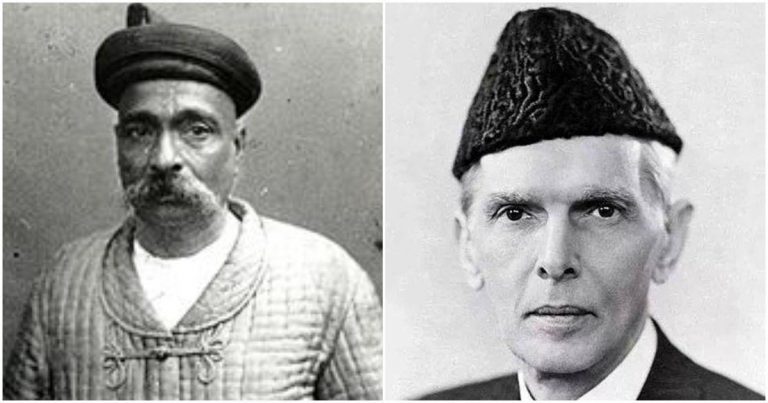
This association developed at a time when both the Indian National Congress, of which Tilak was a towering leader until his death on August 1, 1920, and the All India Muslim League, which later raised the demand for India’s Partition were themselves exploring a collaborative association to demand from the British self-rule for Indians.
Sudheendra Kulkarni
One of the most intriguing political relationships in the history of India’s freedom struggle is that between Lokmanya Bal Gangadhar Tilak and Mohammed Ali Jinnah. This association is iconoclastic on both sides. It punctures the leftist allegation that Tilak was a Hindu communalist. This depiction of Tilak can also be found in many accounts of the history of Pakistan by Pakistani scholars. This comradeship also busts the myth that Jinnah, who later became the architect of Pakistan, was a Muslim communalist.
Father of Indian Revolution
Bal Gangadhar Tilak, byname Lokamanya, (born July 23, 1856, Ratnagiri [now in Maharashtra state], India—died August 1, 1920, Bombay [now Mumbai]), scholar, mathematician, philosopher, and ardent nationalist who helped lay the foundation for India’s independence by building his own defiance of British rule into a national movement. He founded (1914) and served as president of the Indian Home Rule League. In 1916 he concluded the Lucknow Pact with Mohammed Ali Jinnah, which provided for Hindu-Muslim unity in the nationalist struggle. (Click here to continue reading)
Remarkably, this association developed at a time when both the Indian National Congress, of which Tilak was a towering leader until his death on August 1, 1920, and the All India Muslim League, which later raised the demand for India’s Partition were themselves exploring a collaborative association to demand from the British self-rule for Indians.
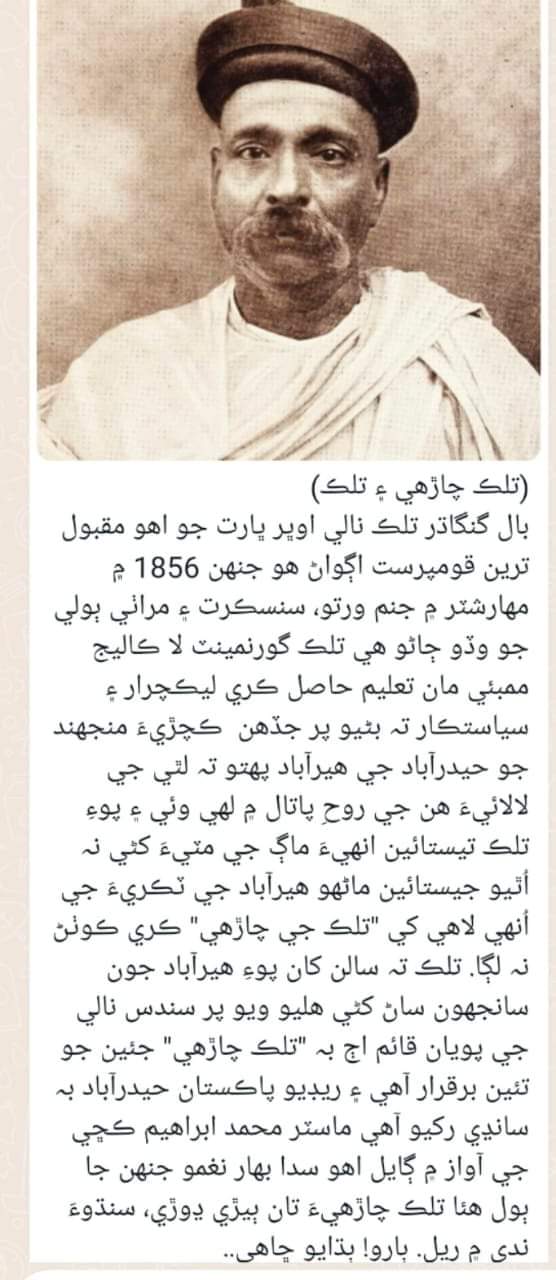
Even more remarkably, it was a time when Jinnah, the most promising young lawyer and nationalist Muslim politician in Bombay in the first two decades of the last century, was a member, simultaneously, of both the Congress and the Muslim League. He had joined the Congress in 1896, when he returned from England to Bombay to start his law practice.
In 1906, he attended the Calcutta session as secretary to Dadabhai Naoroji, the “Grand Old Man” of India’s freedom struggle, who was then president of Congress. He would take membership of the Muslim League much later, in 1913. He viewed himself as a bridge between the two communities, Hindus and Muslims, and also between the two Indian parties, Congress and the Muslim League, pursuing the common goal of national independence.
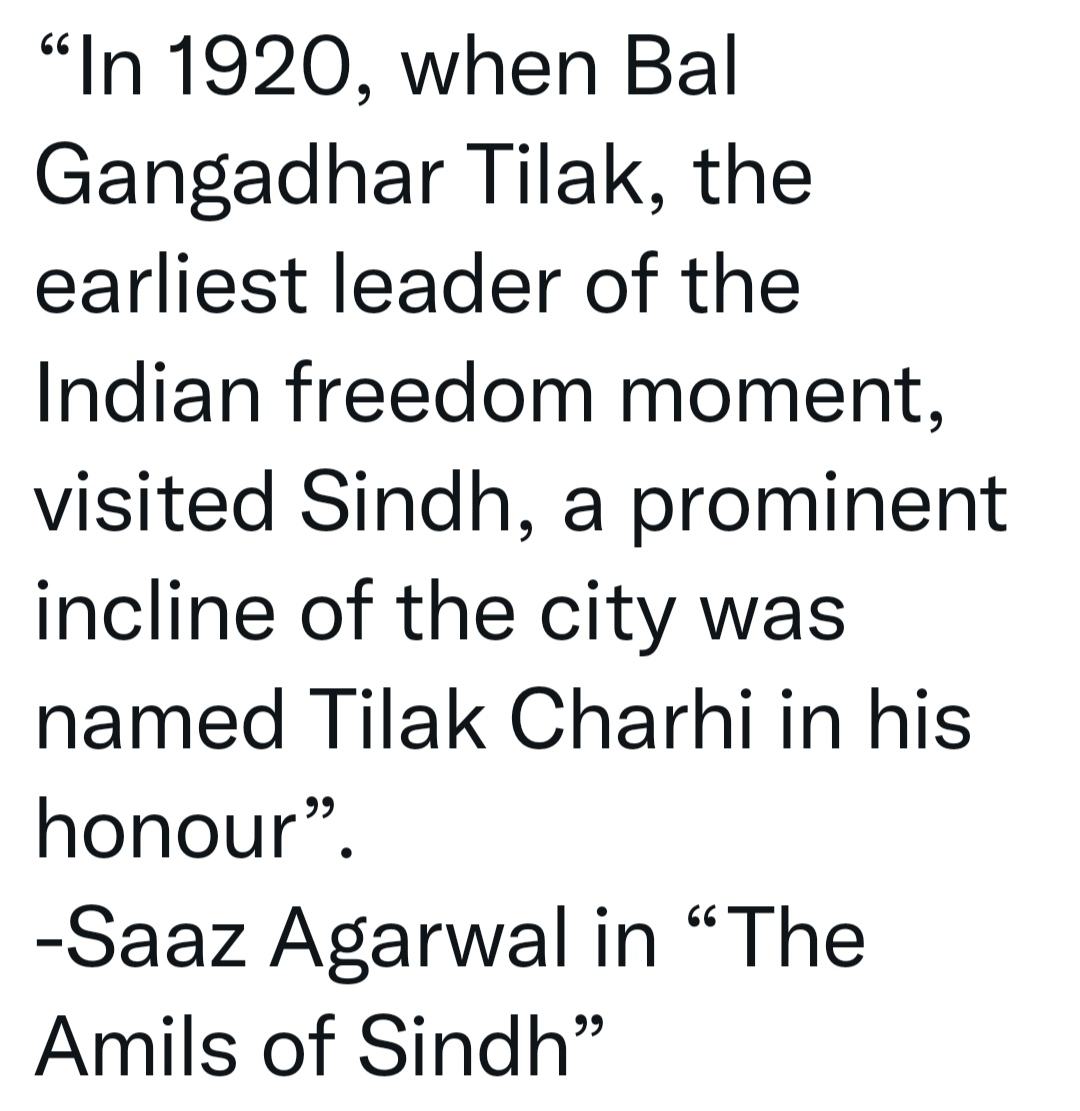
Gopal Krishna Gokhale, his mentor and a respected leader of the “moderate” faction of the Congress – Tilak was a leader of the “militant” wing – had described Jinnah as “an ambassador of Hindu-Muslim unity”. Jinnah himself had expressed the desire to become “the Muslim Gokhale”.
Bombay: The cradle of Hindu-Muslim unity
In his book Jinnah and Tilak: Comrades in the Freedom Struggle, AG Noorani, a prolific scholar, quotes Kanji Dwarkadas, a close friend of Jinnah in Bombay: “The two great political centers in Bombay at that time [c. 1916] were Sardar Griha, where Tilak lived and Jinnah’s chambers in the High Court. All political roads led to these two places for organization, consultation and decision.”
Noorani continues: “Theirs was not what is known as ‘drawing room politics’. They plunged deep into mass politics. Thousands of leaflets and pamphlets were published week after week. After dinner meetings were held at Kalbadevi and Mandvi and every fortnight big public meetings were held at Shantaram’s Chawl, Girgaum, addressed by, among others, Jinnah, Tilak, Khaparde, Khadilkar, NC Kelkar and BG Horniman, an Englishman who edited the nationalist daily Bombay Chronicle. Meetings were also held at places like Mulji Jetha Cloth Market and China Bagh.”
According to Dwarkadas, “The Shantaram Chawl meetings were a bugbear to Lord Willingdon [Governor of Bombay Presidency, which then comprised Sind as well]. For the first time in the history of political agitation, the masses were approached and were made politically conscious…Omar Sobani, Shankarlal Banker and I met Jinnah daily in his chambers to arrange our-day-to-day program of political propaganda.”
Here is an account of Jinnah’s speech at a public meeting in Shantaram Chawl in praise of Tilak, when the people of Bombay gave him a send-off at the beginning of his long visit to England in 1918. As president of the Indian Home Rule League, Tilak was going there to press the case of India’s Swaraj.
“A mass meeting of about 15,000 men was held under the presidency of Mr. Jinnah in the spacious compound of Shantaram Chawl on Tuesday evening to give a hearty send-off to Mr. Tilak and his party. The Hon. Jinnah, in the course of his remarks, said that no man was more fitted to voice the opinions of the democracy here to the English people than Mr. Tilak who had devoted his whole life to the cause of his country. Let it be quite clear, he said, that the demand for the immediate step towards the establishment of the Home Rule was the united demand of the people. It was the birth right of every man and that was the principle of self-determination.”
Addressing the same meeting, Tilak gave a rousing call for Indian unity. “Stand by us, now and ever like men, resolute men, against the temptation that would be offered by the [British] bureaucracy. Accept no compromise, no barter, no change in the matter. If you accept it, we all will be humiliated and laughed at. The bureaucracy might try to create a split amongst us. Be careful, attentive and resolute to stand by the Congress Scheme.”
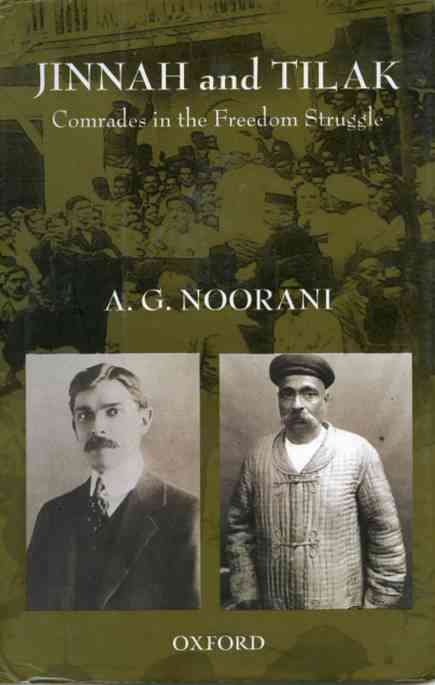 There is another account of a public meeting at Shantaram Chawl, on May 31, 1919, at which Mahatma Gandhi gave tribute to Tilak. The meeting had been organized for the purpose of appreciating Tilak’s services to India and for calling upon the people to contribute to the expenses incurred by him in his case against Sir Valentine Chirol. The following is a full translation of Gandhiji’s speech in Gujarati.
There is another account of a public meeting at Shantaram Chawl, on May 31, 1919, at which Mahatma Gandhi gave tribute to Tilak. The meeting had been organized for the purpose of appreciating Tilak’s services to India and for calling upon the people to contribute to the expenses incurred by him in his case against Sir Valentine Chirol. The following is a full translation of Gandhiji’s speech in Gujarati.
“I am thankful to the organizers of the meeting for asking me to preside. The goal of every thinking Indian must be the same, though the methods for its attainment may be different and it is a matter known to all that my ways differ from Mr. Tilak’s. And yet I would wish to heartily associate myself with every occasion to pay a tribute to his great services to the country, his self-sacrifice, and his learning and with the present occasion in especial. The nation does not honor him any the less for his defeat in his case against Sir Valentine Chirol. It honors him, if that were possible, all the more, and this meeting is but a token of it. I have come to offer my hearty support to it.
“Truly speaking, I am in no love with fighting in law courts. Victory there does not depend on the truth of your case. Any experienced vakil will bear me out that it depends more on the judge, the counsel, and the venue of the court. In English there is a proverb that it is always the man with the longest purse that wins. And there is a good deal of truth in this, as there is exaggeration in it. The Lokamanya’s defeat therefore made me only wish he was a satyagrahi like me, so that he would have saved himself the bother of victory or defeat. And when I saw that far from losing heart at the result of his case, far from being disappointed, he faced the English public with cool resignation and expressed his views to them with equal fearlessness, I was proud of him. He has been in his life acting to the very letter up to what he has believed to be the essential teaching of the Gita. He devotes himself entirely to what he believes to be his karma, and leaves the result thereof to God. Who could withhold admiration from one so great?”
Even in defeat, a hero
Here we should digress a little and devote a few lines to the Chirol case and its significance in Tilak’s life. Sir Ignatius Valentine Chirol was a British journalist who passionately defended the British Empire. “It is impossible that we should ever concede to India the rights of self-government,” he wrote. To buttress this belief, he indulged in vilification of the leaders of India’s freedom struggle, especially Tilak, whom he called the “Father of Indian Unrest”. For example, he described the gymnastic societies started by Tilak as “juvenile bands of dacoits to swell the coffers of Swaraj”.
Chirol’s book in some ways was similar to Catherine Mayo’s Mother India, a vile and derogatory description of India and her freedom movement, which Gandhij dismissed as “a drain inspector’s report”.
Tilak filed a civil suit against Chirol in London for the deprecatory comments on him in Chirol’s book Indian Unrest. Tilak lost the case. The British Government had hoped that his defeat would dent his prestige and popularity in India. The contrary happened. The legal battle further boosted Tilak’s fame. Rabindranath Tagore, a great admirer of Tilak, observed: “You cannot purify the sacrificial fire or the sacred waters of the Ganga.”
The Bombay Chronicle, edited by the legendary journalist BG Horniman, wrote: “Who cares what the British jury and judge said about our beloved Lokamanya? Their pronouncements are powerless to dethrone him from the loving hearts of the people.”
The Chirol case, and Tilak’s long stay of over 18 months in England both to fight the case and also to propagate the cause of India’s freedom, left him under a very heavy burden of debt. This is what prompted Gandhiji and others to start a drive to collect donations from people to provide financial support to Tilak. Such was the response that on May 22, 1920, a purse of Rs.325,000 – a lot of money in those days – was presented to him in Poona.
He was seriously ill at the time, with just over two months of life left for him. He thanked the people and said, “By your generosity you have literally bought my body and soul.” Then, in a choked voice, he added, “Plainly you want me to go on working for you and, of course, I have no option now.”
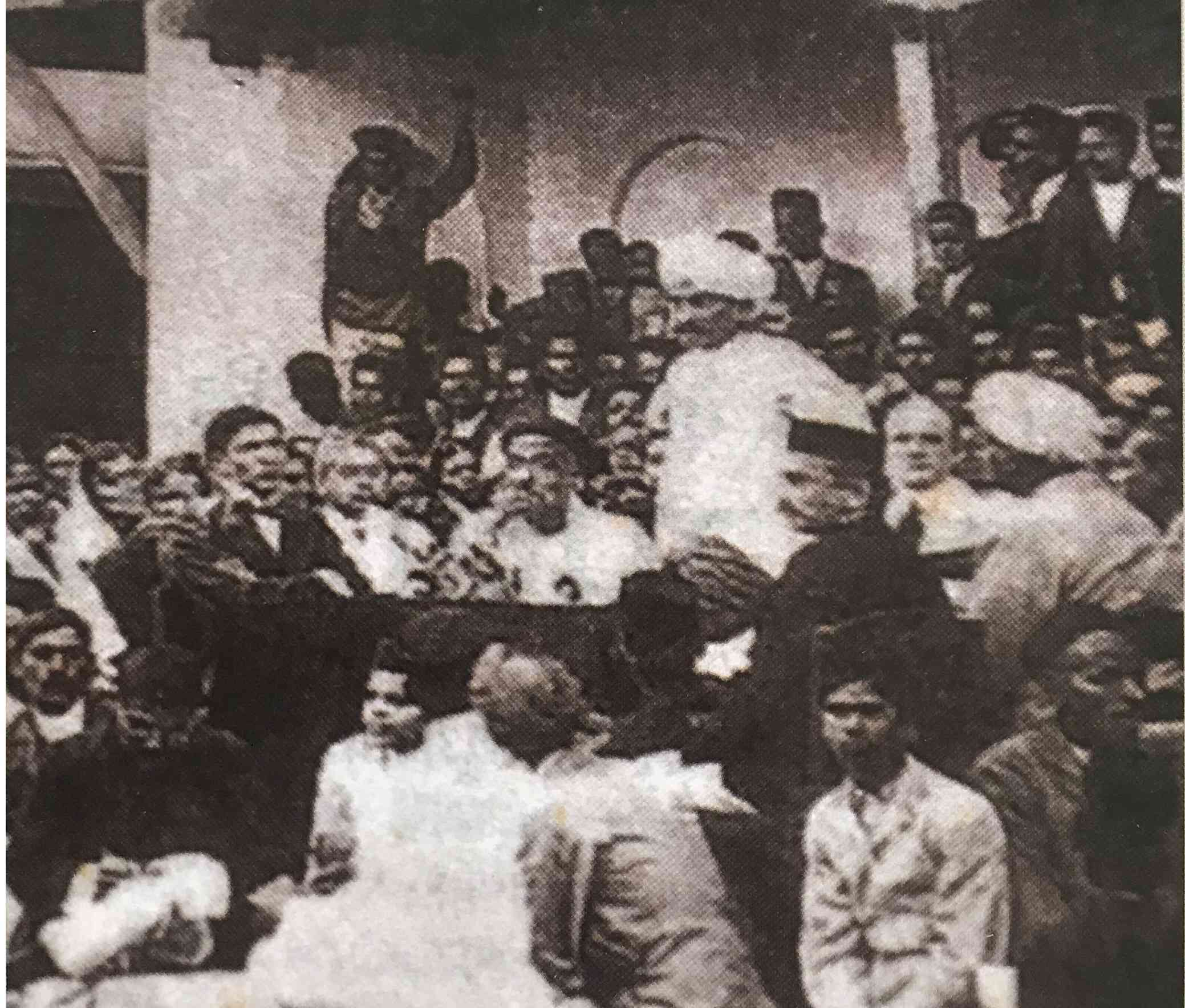
To return to the narrative about the Tilak-Jinnah comradeship – which came to symbolize Hindu-Muslim solidarity for India’s freedom – at least two rare photographs of large mass meetings at Shantaram Chawl, which typified the middle-class and working-class habitat in Bombay a hundred years ago, have survived the ravages of time. One shows Tilak and Jinnah. The other shows Tilak and Jinnah, along with Mahatma Gandhi. Not far from Girgaum, and towards its North, was Girangaon, the hub of textile mills in and around Parel. Tilak would regularly address meetings of trade unions there. And between Girgaum and Girangaon were – and still are – Muslim-dominated areas such as Byculla, Bhendi Bazar and Nagpada, with absolutely no physical barrier between Hindu and Muslim localities.
Tilak’s Sardar Grih in Girgaum, a modest private guest house in which he rented a room whenever he came to Bombay, itself was in close vicinity of Anjuman-i-Islam, the oldest Muslim educational institution in India founded in 1874, a year before the establishment of the Alilgarh Muslim University, originally known as the Mohammedan Anglo-Oriental College, by Sir Syed Ahmad Khan.
Its founder was Badruddin Tyabji, a great patriot who was president of the Indian National Congress at its third session in Madras in 1897. As a judge of the Bombay High Court, he was known for his courage and impartiality, as became clear in his granting bail to Tilak in a sedition case in 1897 after it had been rejected thrice by others. Tyabji, unlike Sir Syed, urged Muslims to join the Congress so that the interests of Muslims and Hindus could be advanced jointly. Incidentally, Jinnah, who too held the same view, regarded Tyabji as his mentor, and once told him that there was “nothing that I shall follow more readily than your advice.”
A ‘composite’ patriotism
All these things must have influenced Tilak’s mind, broadening his views on Indian nationalism. In an important speech on “Patriotism”, which he delivered in Bellary, Karnataka, in May 1905, he said, “Patriotism must be composite. The limits [of patriotism] must be widened.” Evidently, Tilak was saying that India was neither a Hindu Nation, as propounded by the Rashtriya Swayamsevak Sangh, founded five years after his death, nor a Muslim nation, which later became the demand of the Muslim League, under the leadership of Jinnah, to be carved out in Muslim-majority parts of India. In the same speech, Tilak elaborated his concept of secular Indian nationalism, which is nothing but “composite nationalism”, as he called it.
“When you go to consider a question whether India can be a nation various considerations crop up in connection with it. One man says that unless the whole of India comes to profess one faith or unless they all become Christians, or Mohamedans or Hindus for the matter of that; there cannot arise one nation from the heterogeneous communities. Another man says that it is our social customs that keep us behind and down and that unless we cast them away there is no salvation. Our industrial friend says that unless the Indian industries are revived and unless the country accumulates more wealth – for wealth is power – there can be no salvation for India. Each man has his own view and pushes it forward. But when we consider the subject from all points of view it must be admitted that all these views are more or less one sided. When we consider the question of nationality and national progress we cannot afford to look at it only from one standpoint of view. We must look for progress all along the line and understand the mutual relations of the different parts so that in our enthusiasm for one we may not kill or come in conflict with the others.”
Anyone who reads these lines now will know how relevant they are for strengthening the unity of today’s multi-faith India and for promoting harmony in our multi-community society as it continues to grapple with Hindu-Muslim tensions on the one hand and, on the other, with the tension between economic progress in an era of globalization and an urge to preserve our culture and traditions.
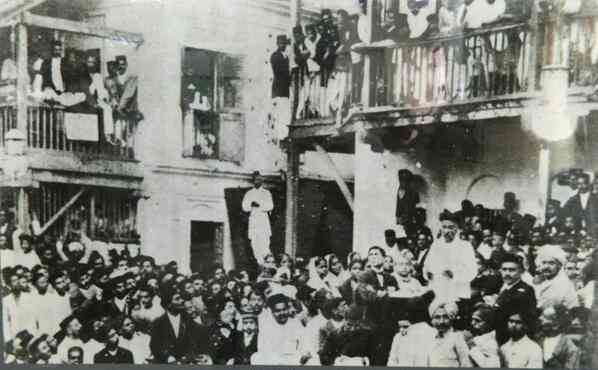
Jinnah’s views on “composite” Indian nationalism in the first three decades of the last century echoed those of Tilak. At the 22nd session of the Indian National Congress in Calcutta in 1906, which was being held around the same time as the founding session of the Muslim League in Dhaka, Jinnah said, “Muhammadans can equally stand on this common platform and pray for our grievances being remedied through the program of the National Congress…The foundation upon which the Indian National Congress is based is that we are all equal.”
Jinnah strongly believed in the idea of a “union of the two great communities in India”. In a speech at Anjuman-i-Islam on January 20, 1913, he regarded it a necessity for the Hindus and Muslims “to combine in one harmonious union for the common good.” Presciently, he described this as the “problem of all problems that the statesman in India has to solve before any true advance or real purpose can be achieved”.
It is not out of place here to recall what Jinnah said while presiding over a meeting of the Gurjar Sabha in January 1915 to welcome the return to India of Mahatma Gandhi from South Africa. “He impressed upon Gandhi the importance of such unity. The South African question, in which Gandhi had been so actively involved, was to Jinnah the first issue “on which the two sister communities stood together in absolute union”.
And “it was that frame of mind, that state, that condition which they had to bring about between the two communities, when most of their problems…would be easily solved. That…was one problem of all the problems of India – namely how to bring about unanimity and cooperation between the two communities so that the demands of India may be made absolutely unanimously.” (Continues)
__________________
Sudheendra Kulkarni was an aide to India’s former Prime Minister Atal Bihari Vajpayee in the Prime Minister’s Office between 1998 and 2004. As the founder of Forum for a New South Asia, he is actively engaged in efforts to strengthen communal harmony in India and also to promote India-Pakistan and India-China friendship.
Courtesy: Scroll